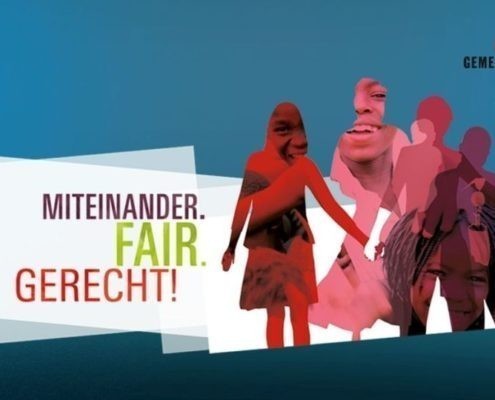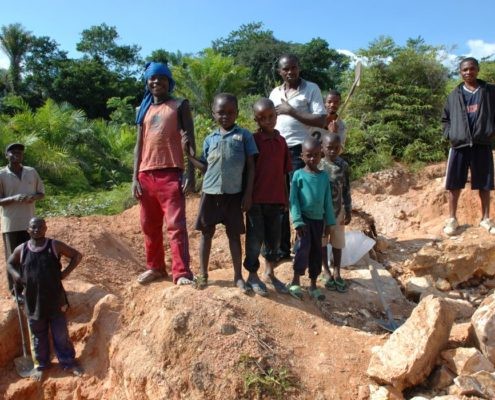The Meaning of Christmas
Orthodox Metropolis of Zambia and Malawi (photos from here)
“Heaven and earth join in celebration…Wise men and shepherds welcome Him…Angels and humans sing with joy…”
The question, “What does Christmas mean?” has as many answers as people
in our society. Opportunity for merchants, vacation days for school
children, parties and exchange of gifts even for non-Christians, since
it has become a national holiday even in a nation that forbids official
recognition. All including Christians, even Orthodox Christians, define
the event by their own understanding, and by doing so limit the meaning
of Christmas. There can be no definition, because the birth of the Son
of God transcends every attempt to explain the inexplicable or
comprehend the incomprehensible. We can only thank the Holy Trinity for
the nativity of the Messiah and celebrate His life on earth.
Christmas is a mystery, a glorious event in history, the awesome phenomenon when “Christ Jesus Who, being in the very nature of God, did not consider it robbery to be equal with God, but made Himself of no reputation, taking the form of a bond-servant and coming in the likeness of men…” (Philippians 2:5). The kenotic condescension of the Holy Trinity expressed by the evangelist John, “The Word became flesh,” can only be explained by the word “love.”
Such a divine love for human
beings transcends the ability to grasp with our limited capacity, which
is why the Orthodox Church services for this season, filled with joy,
wonder and gratitude, point to the inexplicable event without even
trying to elucidate the wonder.
“Heaven and earth join in
celebration…Wise men and shepherds welcome Him…Angels and humans sing
with joy…” The glorious hymn of laudation: “God is with us!” requires an
explanation, because that phrase has been misused, wrongly applied and
abused by some Christians through the ages.
What it does not mean is
that God endorses a nation or purpose against His other children.
"Gott mit uns", for example, was a battle cry of Nazi Germany equal to
the present day war shout of radical Muslims: "Allahu akhbar!" as
those flying into the Twin Towers yelled. “With us” is the joyous
awareness of the awesome mystery that Creator became Creature, the
Eternal condescended to human limits including death, love beyond all
human comprehension has manifested itself in Christ Jesus the Son of God
Who became the Son of Man for our sake.
Christ appears on earth
as the most precious Gift that we cannot hope to recompense, certainly
never earn or comprehend. Why does God love us so much, and how can we
repay Him? Nobody, not even the Lord Almighty, offers gifts without
expecting something in return. We know there is nothing we have as our
own except the present of freedom. We are not robots, and even if “our
days are like grass…” (Psalm 103:15), nevertheless, in our brief life
span we have time to consider the gift of life and the Source of life.
We can come to the realization that this lifetime may be short, but the
promise of the gift of eternity is part of the reason for the
incarnation of the Son of God. Salvation is Christ’s purpose for His
birth.
Christ is life, and yet He died so that we might share eternal
life with Him. Yet another mystery.
He offers us life
everlasting, but He does not insist we accept it—or Him. He “stands at
the door and knocks,” but it is for us to open to Him or leave Him
outside. Such respect is almost too much; however, He treats us with a
freedom that we feel we do not deserve or that we may not appreciate. We
throw away our freedom with excess of passions, with some form of
addiction to drugs, alcohol, overindulgence, wallowing in despair or
foolish behavior—and Jesus remains standing outside the door of our
heart, patiently waiting to be invited inside. How can He love us that
much?
Christmas Message 2018 by Metropolitan Jonah of Uganda
Christ the Word of God the Father is born from the Holy Spirit and the Virgin Mary! Mt 1:20, 21. Lk 2:6,7. For the salvation of human race with all creation, from the destruction of sins. Ac 4:12. 1 Th 5:9. This fact, of incarnation of the Word of God for the economy (dispensation) of the whole creation, is the first perspective of the gospel in the New Testament. But the entire gospel, in its completion, is fulfilled by the good news of resurrection of the Son of Man. Ro 1: 3,4. Therefore, the incarnation of the Word in Jesus Christ, Jn 1:14, 29, the removal of destructive sin, 1 Cor 15: 26, and the defeat of death in the glory of resurrection, is the complete gospel towards all people, for the harmony of all creatures, Uganda not being exempted. 2 Cor 6:16.
Since we are creature of God, supposed to live by performing His will, the situation we desire or search as moral persons, and the situation we would like all of us to reach on, it is not besides of the work of Christ the Word, but within itself. What is that work? That work is of building the kingdom of God in the souls of men and in the whole world, in their life and civilization. For that is the chief will of God the Father, by which we live as moral persons. Mt 4:16, 17. Mk 1:14, 15. Lk 4:16-19. In Christ Jesus, as the Word of God, all creatures were made, and through Him all things made by men are understood and realized for establishment. Jn 1: 3-5. Col 1:15-17. And the same is the situation we seek all of us to live with, the situation of the will of God the Father, to make man in His image. Gn 1:26.
"Panagia Mirtidiotissa (the holy icon of the Mother of God "in the Myrtle Tree"), St Porfyrios and St Paisios parish in Rubaare Ntungamo (Uganda) wishes u a Merry Christmas" (from here)
From this perspective, if it is true that, the incarnation of our Lord Jesus Christ has as purpose to integrate our life and culture with the Kingdom of God the Father, as His chief will is in all the divine Scriptures, then it becomes clear that, here in Africa and especially here in Uganda, we live still in thick darkness with our Christianity. Jn 1:4-5. Because, this truth is not yet recognized by most of the people, not only on the lower level, but also on the highest level. That is the reason why, all our politics, businesses, economy, associations and education systems contradict themselves and are in rivalry to each other. All these cannot be rectified without the Word of God the creative, the king of our life and civilization. Col 1:19-20. This problem brought Jesus Christ, as Son of Man, Dan 7:13. Mt 12:8, to establish the foundation of men who live as image and likeness of God, men who participate in the internal Kingdom of God.
Therefore brethren, during this Christmas, let us seek the situation of an appropriate joy from the incarnation of the Word Son of God the Father. Such is the joy of finding, recognition and living the salvation that brought by Jesus Christ on earth, in its complete form, but not in its least piece. Because, even if it is so good to receive salvation individually, myself to become a savedee for myself, and you as yourself for yourself, that is not the only purpose of the birth of the Word as Son of Man in the person of Jesus Christ. To clear out completely the sins and evils from the world Jn 1:29, to combat against Satan the evil-one with all his works that distort the will of God Jn 8:41,44, Gn 3:5; to trample on death Is 25:8,9; 2 Tim 1:10; and to wear immortality by dressing in the nature of Christ Jesus and the Holy spirit; Ro 2:7. 1 Cor 15:53,54; as well as to rectify the development and civilization of mankind in the world (may not cause the destruction of creation); Ro 8:20-23. Col 1:19-23; all this is salvation brought by the Word Son of God towards the people. All these parts of salvation, when are not considered by us, and we remain only on the praise of our individual salvation, then we exist having not understood the gospel of incarnation of the Son of God, and we live not fully this gospel, except that minimum part, which can not cause any change in the world.
As we conclude this message, we wish His Excellence, the President Yoweri Kaguta Museveni and his family, His Excellence, the Vice President, Edward Kiwanuka Ssekandi, the Judiciary, the Ministers, the Members of Parliament; His Highness the Kabaka of Buganda, Ronald Muwenda Mutebi II, Nabagereka Sylivia Nnaginda, Cultural leaders, Leaders of Faith and all Ugandans, the incarnation of the Word of God in our Lord Jesus Christ, that is to say, His Nativity as the righteous Son of Man for the salvation of human race and all creation from destruction; may be a Feast that enables us all the Christian believers to celebrate joyfully, understanding fully even the cause that made the Word of God to appear on earth. Amen.
"May the birth of Christ our Lord and savior bring renewal Of our hearts, create a new spirit of love, joy and healing in us and lead us into a future of Hope. Blessed Nativity of Christ to all."
Christmas 2018 in Burundi (from here)
Christmas greetings from Nyeri and Mount Kenya (from here)
"May the birth of Christ our Lord and savior bring renewal Of our hearts, create a new spirit of love, joy and healing in us and lead us into a future of Hope. Blessed Nativity of Christ to all."































